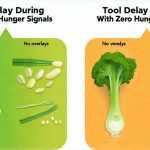The frustrating cycle of digestive sluggishness followed by days where appetite seems to vanish is something many people experience, often dismissing it as simply ‘one of those things’. It’s easy to chalk it up to stress, a busy schedule, or just not feeling hungry, but consistently experiencing this pattern can indicate a deeper connection between how well your digestive system functions and your body’s natural hunger cues. Ignoring these signals isn’t merely about inconvenience; it hints at a potential imbalance that could impact nutrient absorption, energy levels, and overall wellbeing. Understanding the link between sluggish digestion and low appetite is crucial for taking proactive steps towards better health and restoring a comfortable relationship with food.
This isn’t necessarily about having a diagnosed digestive disorder (though those should always be addressed by a healthcare professional). Rather, it’s frequently about functional issues – meaning your digestive system isn’t working optimally, even if tests come back ‘normal’. These functional imbalances can often stem from lifestyle factors like diet, stress management, sleep quality and physical activity. When digestion slows down, food sits in the gut for longer periods, potentially leading to discomfort, bloating, and a reduced desire to eat. Then, when appetite does return, it might be weak or easily overwhelmed, creating a frustrating back-and-forth. Recognizing this connection is the first step towards finding sustainable solutions that support both digestive health and a healthy appetite. You can learn more about identifying imbalances with digestive diagnostics.
The Gut-Appetite Connection: More Than Just Hunger
The relationship between our gut and our brain is profoundly interconnected – often referred to as the gut-brain axis. This bidirectional communication system isn’t just about digesting food; it significantly influences mood, cognitive function, and crucially, appetite regulation. Hormones like ghrelin (which stimulates hunger) and leptin (which signals fullness) play key roles in this process, but their effectiveness relies on a healthy digestive system. When digestion is sluggish, the production and release of these hormones can be disrupted, leading to inaccurate signaling and ultimately, a diminished sense of hunger or a distorted perception of fullness.
Furthermore, a compromised gut microbiome – the trillions of bacteria residing in our intestines – can also impact appetite. An imbalance in gut flora (dysbiosis) has been linked to altered hormone production, increased inflammation, and impaired nutrient absorption. Inflammation, in particular, can suppress appetite, making it even harder to feel motivated to eat when your digestive system is already struggling. It’s not just about what you eat, but also the state of your gut environment that determines how effectively your body utilizes those nutrients and responds to hunger signals. Understanding how digestive tests can help pinpoint issues is a great starting point.
Finally, consider the role of vagus nerve stimulation. The vagus nerve acts as a direct line of communication between the gut and the brain. A healthy digestive process naturally stimulates the vagus nerve, promoting feelings of satiety and wellbeing. When digestion is sluggish, this stimulation diminishes, potentially contributing to appetite suppression and reduced enjoyment of food. It’s a complex interplay, where each component – hormones, microbiome, vagus nerve – relies on the others functioning optimally for a balanced experience with hunger and fullness. Often digestive sluggishness can occur after illness, impacting these systems.
Restoring Digestive Flow: Gentle Approaches
Addressing digestive sluggishness isn’t about drastic measures; it’s often about incorporating gentle, sustainable changes that support natural digestive processes. One of the most effective starting points is focusing on mindful eating. This involves slowing down during meals, chewing food thoroughly, and paying attention to hunger and fullness cues. Rushing through meals overwhelms the digestive system and hinders proper breakdown of food. Simple techniques like putting your fork down between bites or avoiding distractions can significantly improve digestion.
Beyond mindful eating, dietary adjustments can make a big difference. Increasing fiber intake – from sources like fruits, vegetables, whole grains, and legumes – is essential for promoting regularity and gut health. However, it’s important to increase fiber gradually to avoid bloating or discomfort. Similarly, adequate hydration is crucial, as water helps soften stool and facilitates movement through the digestive tract. Avoiding highly processed foods, excessive sugar, and unhealthy fats can also reduce inflammation and support a healthier gut environment.
Finally, incorporating gentle forms of physical activity into your routine can stimulate digestion. Even a short walk after meals can help move food along the digestive tract and alleviate bloating. Regular exercise isn’t just about fitness; it’s about supporting the natural rhythms of your body, including your digestive system. Utilizing rest days can also promote healthy digestion and allow for recovery. These combined approaches aim to create an environment where digestion flows more smoothly, paving the way for a restored appetite and improved overall wellbeing.
Simple Steps to Enhance Digestion
- Hydrate consistently: Aim for at least eight glasses of water daily. Carry a reusable bottle as a reminder.
- Chew thoroughly: Break down food into smaller particles before swallowing to ease the digestive process.
- Prioritize fiber-rich foods: Include fruits, vegetables, whole grains and legumes in your diet gradually.
- Manage stress levels: Practice relaxation techniques like deep breathing or meditation. Chronic stress can significantly impact digestion.
- Consider a probiotic supplement (with professional guidance): Probiotics can help restore balance to the gut microbiome.
Addressing Potential Nutrient Deficiencies
When digestive sluggishness leads to reduced appetite, it’s possible that nutrient deficiencies may develop over time. Even if you are eventually able to eat again, your body might not have received adequate nutrients during periods of low intake. Common deficiencies associated with poor digestion include Vitamin D, B vitamins, iron and magnesium. It’s crucial to note that self-diagnosing is never recommended. If you suspect a deficiency, consult with a healthcare professional who can order appropriate tests and recommend personalized supplementation if necessary.
Focusing on nutrient density in your meals when appetite returns is also important. This means choosing foods packed with vitamins, minerals, and antioxidants. For example, leafy green vegetables are rich in Vitamin K and folate, while fatty fish provide essential omega-3 fatty acids. Prioritizing whole, unprocessed foods provides the building blocks your body needs to function optimally and support a healthy digestive system. Remember that food is medicine, and nourishing your body with nutrient-rich options is key to restoring balance and vitality. It’s also possible that GERD symptoms can contribute to these deficiencies.
The Role of Professional Guidance
While many lifestyle adjustments can be implemented independently, seeking professional guidance is often beneficial, especially if digestive sluggishness and low appetite are persistent or severe. A registered dietitian can help you develop a personalized eating plan tailored to your specific needs and sensitivities. They can also identify potential food intolerances or allergies that may be contributing to digestive discomfort.
A gastroenterologist can rule out any underlying medical conditions that might be causing the symptoms, such as inflammatory bowel disease or celiac disease. Furthermore, functional medicine practitioners often take a holistic approach, addressing the root causes of digestive imbalances and providing individualized treatment plans. Don’t hesitate to reach out for help if you’re struggling. A healthcare professional can provide valuable support, guidance, and reassurance throughout your journey towards improved digestive health and a healthier relationship with food. Understanding enzyme imbalances can also assist in seeking appropriate professional help.


















